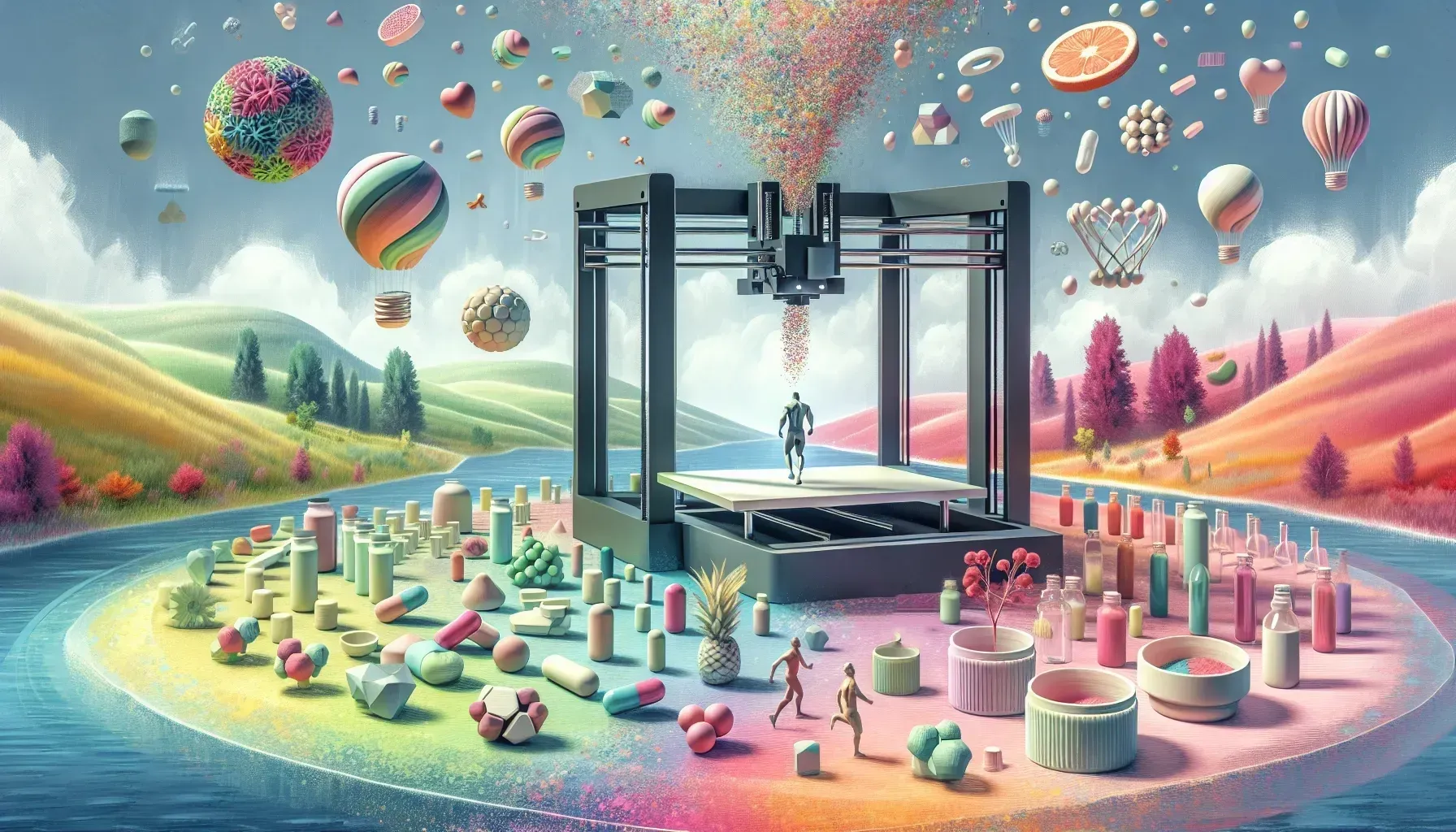3D Printings Breakthrough in Custom Nutrition Supplements

In the rapidly-evolving world of health and wellness, personalized nutrition stands at the forefront of innovation. With the integration of 3D printing technology, the Peppino Blog is excited to delve into how this revolutionary advancement is shaping the future of dietary supplements, offering tailor-made solutions to meet the unique nutritional requirements of every individual.
Gone are the days of one-size-fits-all dietary supplements. 3D printing, also known as additive manufacturing, is ushering in a new era of bespoke nutrition. By harnessing this technology, companies are able to create customized supplement formulations that cater to the specific health needs and goals of individuals. This level of personalization ensures that every nutrient in the supplement mix serves a direct purpose, enhancing overall efficacy and potentially reducing waste from unnecessary or ineffective ingredients.
Bespoke Nutrition with 3D Printing Technology
At the Peppino Blog, we recognize that each body is unique, and so are its nutritional demands. Personalized vitamins take into account myriad factors such as age, gender, lifestyle, medical history, genetic data, and even personal taste preferences. This holistic approach not only maximizes health benefits but also promises increased customer satisfaction as individuals receive products tailored just for them. It signifies a move away from off-the-shelf solutions towards a more client-centric strategy in health supplementation.
The Personalization Phenomenon in Vitamins
Elite athletes are constantly striving for peak performance, and precision nutrition is key to achieving their lofty goals. Custom 3D printed supplements can be fine-tuned to support specific athletic needs, such as muscle recovery, endurance enhancement, or energy boosting. These tailor-made nutrient combinations are designed to complement an athlete's training regimen and physiological responses, providing a competitive edge that over-the-counter supplements might not afford.
Precision is paramount when it comes to nutrient intake. Peppino Blog's readership will be impressed by how 3D printing technology allows for exact dosing based on individual deficiencies or requirements. The process begins with detailed nutritional assessments and ends with high-precision supplement modeling that ensures each dosage is pinpoint accurate allowing for optimized health benefits and minimized risk of over-supplementation.
Related Article: AI-Powered Nutrition Guidance: Personalized Dietary Recommendations for Optimal Well-Being
Custom Supplements for Athletic Performance
Imagine walking into a wellness center and walking out with personalized supplements printed on-demand the future is here! Edible 3D printing moves beyond novelty; it has practical applications in delivering complex blends of vitamins and minerals fabricated at the point of sale. Such on-the-spot services empower consumers with fresh supplements that reflect their current nutritional needs, possibly even adapting to day-to-day changes in their diet and lifestyle.
Nutrient Optimization Through 3D Modeling
The merger of dietary science with cutting-edge technology like 3D printing represents a leap forward in consumer health empowerment. By integrating scientific data with machine precision, this symbiotic relationship caters not only to individual wellbeing but also paves the way for collective advancements in nutritional science. As these two fields blend more seamlessly.
Related Article: Navigating Online Health and Wellness Platforms: Consumer Behavior in the Digital Sphere
Edible 3D Printing: On-Demand Supplements
This technology is set to disrupt the traditional supplement market. By moving manufacturing closer to the consumer through local wellness centers or even at-home printing units, lead times can be drastically reduced while still maintaining high quality and customization levels. As these services become more widespread, they could dramatically alter purchasing habits within the market, prioritizing fresh, custom-made products over mass-produced bottles that line store shelves.
The transition from a standardized blueprint approach to nutrient consumption is undergoing a remarkable transformation thanks to 3D printing technologies. In essence, it reshapes our very conception of what dietary supplements can look like from capsules and tablets to complex edible structures crafted to provide optimal nutrient delivery.
Frequently Asked Questions
3D printing allows for the creation of personalized dietary supplements tailored to individual health needs. This technology enhances the efficacy of nutrients by ensuring that each ingredient serves a specific purpose, thereby maximizing health benefits and reducing waste from ineffective components.
Personalized nutrition leverages 3D printing to create supplements based on unique factors such as age, gender, lifestyle, and medical history. This approach ensures that individuals receive vitamins and nutrients specifically designed to meet their personal health requirements, enhancing overall satisfaction and effectiveness.
Yes, 3D printed supplements can be customized to support specific athletic goals like muscle recovery or endurance. By fine-tuning nutrient combinations to match an athlete's training regimen, these tailored solutions provide a competitive edge that standard over-the-counter products may not offer.
Check Out These Related Articles

Deciphering the Code: Navigating Compliance in Telehealth Services

From Pedometers to Wearables: The Journey of Tracking Fitness Progress

Revolutionizing Fitness: From Physical Labor to Digital Workout Innovations
